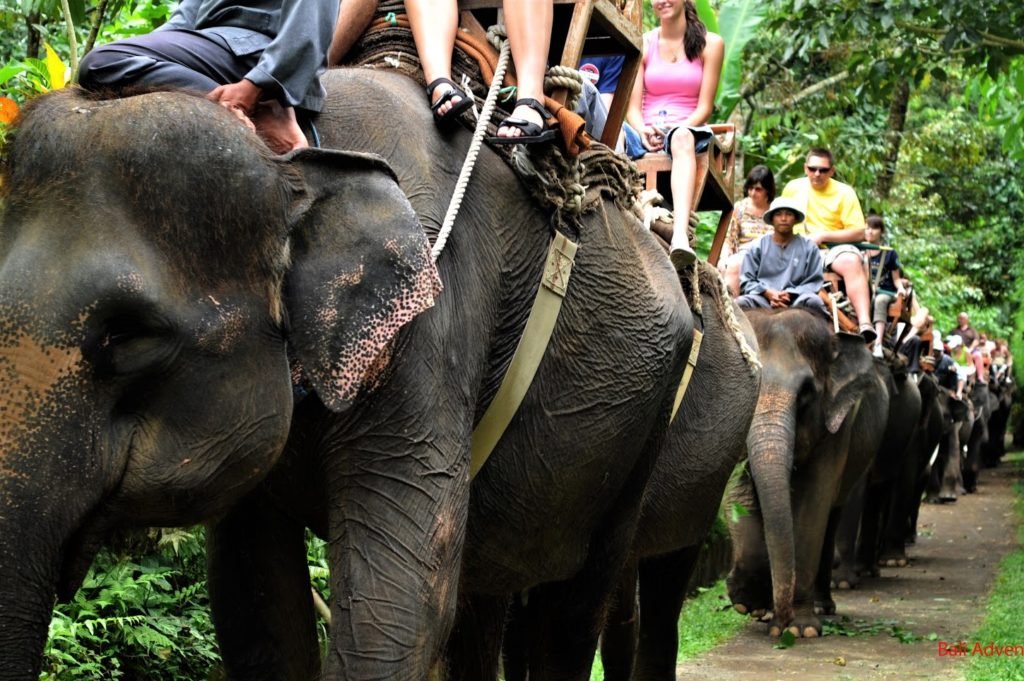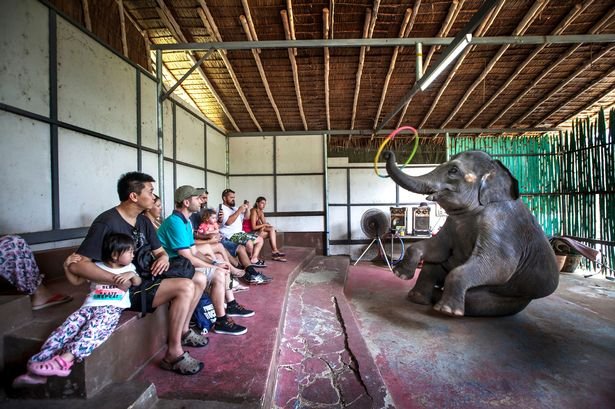The temptation to get up close and friendly and take selfies with iconic and cute creatures is almost impossible to resist.
The following are excerpts from reviews of a tiger petting facility in Thailand posted on TripAdvisor.
“First Time I Used A Live Tiger as A Pillow. This place is cool. Good food, drinks, and the opportunity to get into a cage with live tigers. Tiger Kingdom allows you to choose from entering cages with small, medium, or large tigers. Getting into the cage is thrilling and the photos with the tigers will be the ones your friends like the most.”
“Better than expected – honest animal lover’s review. It’s important to remember these are captive Tigers, they have grown up around humans and wouldn’t survive in the wild. . The keepers did have sticks, but I only saw them use them to run them along the ground to play with the Tigers or gentle taps to discipline the young tigers. In the wild, being clobbered by their mother’s paw to discipline them would be a lot more painful.
What a crazy experience! We paid to see all of the animals and you should too!”“I’m an animal lover and I was skeptical of if I would agree with the treatment and care of these animals. I wouldn’t feel comfortable endorsing this place if I thought the animals received even the slightest bit of poor treatment. Go be amazed of beauty and size of these animals, you won’t regret it.”
The main message that these reviews reveal is that in our modern times animals are still inconsequential in society and no one really cares about their rights, welfare or needs only having a good time. It also confirms that despite social media publicity of animal abuse and better education we have not moved on from the days of viewing animals as objects and chattels to make use of. I despair at how naïve This naivety and complete lack of comprehension and awareness of animal rights and welfare issues, particularly by the young, is depressing. It would appear that animal abuse is inescapable in our modern age.
What is even more frustrating is that self declared “animal lovers” see no wrong in patronising obviously cruel animal attractions because “loving” animals according to them only involves the selfish desire to be close to them, stroke them and have their picture taken despite the circumstances or the way they are treated. Or to use a tiger “as a pillow”, “have good food and drinks” and be amazed that they come in all sizes.

The message is that all these attractions are cruel
I realise that for a person with no genuine empathy for animals the temptation to get up close and friendly and take selfies with iconic and cute creatures is almost impossible to resist. Thanks to social media this enticement outweighs any other considerations. The truth is that all these attractions no matter how well run you believe they are, all have a component of cruelty and abuse connected to them either before, during or after the animals have participated, or all three.
Imagine the reaction to a puppy petting farm where the pups are constantly interfered with by hordes of visitors.
The tiger cubs are bred purely for the purpose of stocking these petting establishments. When older become the breeders of the next generation just like puppy farms that we all supposedly hate. So imagine a puppy petting farm where the pups are constantly pestered by hordes of visitors and then when older, banished to breeding pens to produce a constant supply of puppies to be manhandled.
Would you be so eager to visit such a place then? These petting zoos have no conservation or rescue purpose at all and only exist to make money for local entrepreneurs. If we didn’t frequent them they would not exist and the tigers would not be put through all the trauma and stress. And of course these establishments are a health and safety nightmare.
It should be enough to see wild animals from a safe distance without molesting them. I hate to say it, but it is even more preferable to patronise a zoo than frequent these places. It is also a shame that large corporations such as TripAdvisor cannot do more to restrict the encouragement to visit these establishments by monitoring the reviews.
Please people – get real and avoid these places and find somewhere else to get a thrill!
